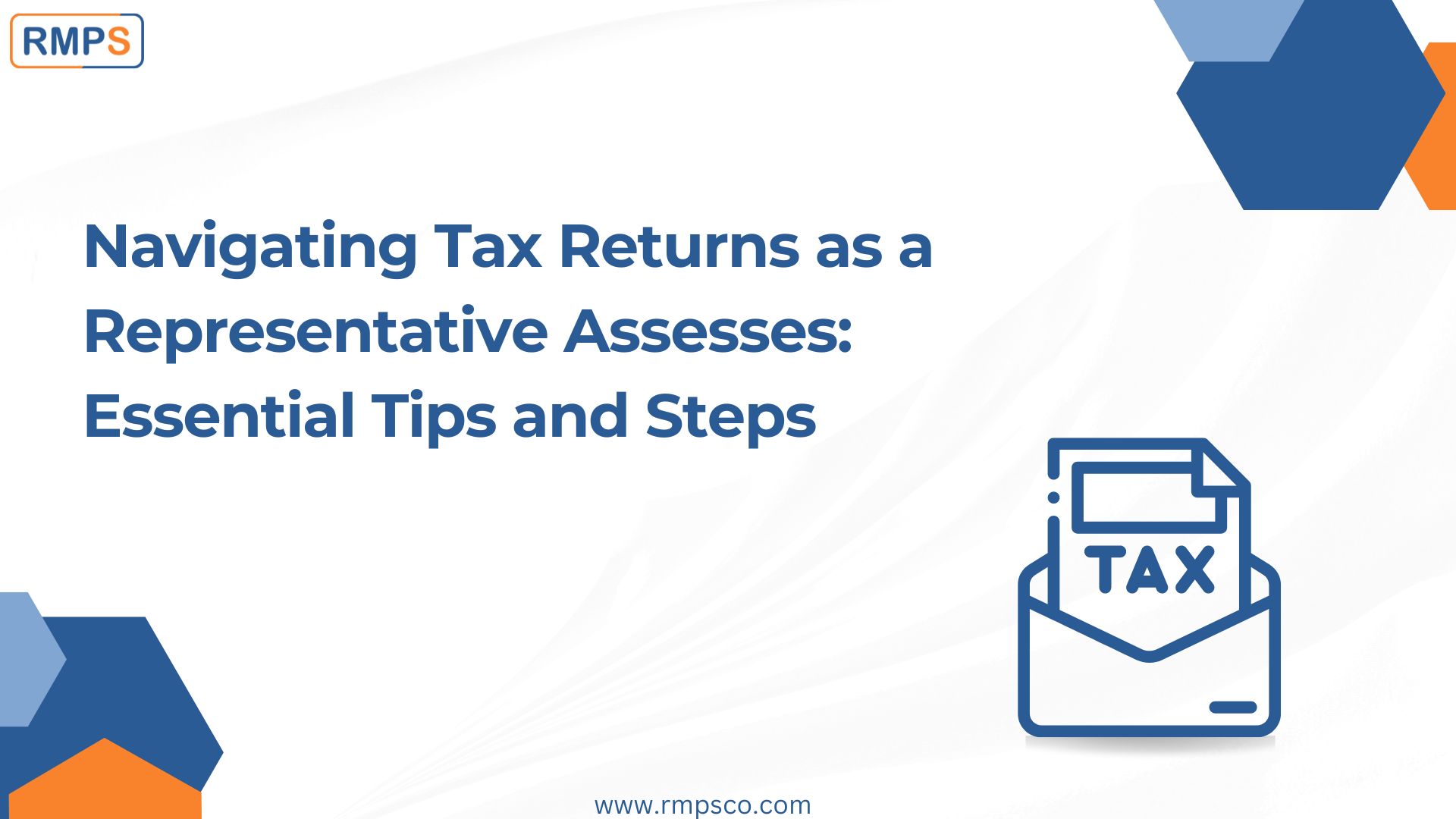
Filing income tax returns as a representative assessee may seem challenging, but it is an important task when the original taxpayer cannot handle their own taxes. This situation can arise if the taxpayer is a minor, incapacitated, deceased, or a non-resident. In such cases, the representative is responsible for ensuring the tax obligations are met. By following a clear process, this task can become much simpler.
When is it Required to File as a Representative Assessee?
You need to file as a representative assessee in certain cases, such as:
1.Deceased Person: When someone passes away, their legal heir or executor must file the income tax return.
2.Minor: If a minor has income that requires a tax return, the parent or guardian needs to file it.
3.Incapacitated Person: If someone cannot handle their finances due to illness or disability, the guardian files the return.
4.Non-Resident: When a taxpayer lives abroad, their representative in India manages their tax filing.
These situations call for a representative assessee to take responsibility for the tax filing process.
Document Requirements
To file a tax return as a representative, you need to gather the right documents:
- PAN of Both the Assessee and Representative: You need both the taxpayer’s and your PAN numbers.
- Legal Heir Certificate: This certificate is necessary for deceased individuals.
- Guardianship Certificate: If you are filing for a minor or incapacitated person, this document is required.
- Power of Attorney: This document is needed when representing non-residents or incapacitated individuals.
- Death Certificate: In the case of a deceased taxpayer, you must provide their death certificate.
Step-by-Step Process to File as a Representative Assessee
- Obtain Legal Documentation:
- Collect all the required documents that establish your authority as the representative, such as the legal heir or guardianship certificate.
- Register as a Representative on the Income Tax Portal:
- Log in to the Income Tax e-filing portal.
- Go to ‘My Account’ and choose ‘Register as Representative.’
- Upload the necessary documents, like the legal heir or guardianship certificates.
- Wait for the Income Tax Department to approve your registration.
- Login to the Portal as a Representative:
- Once approved, log in using your credentials and access the taxpayer’s PAN.
- Prepare the Tax Return:
- Choose the appropriate Income Tax Return (ITR) form based on the income of the taxpayer.
- Input all the income and deduction details for the financial year.
- Submit the Return and Verify:
- After reviewing the details, submit the return electronically. Ensure that all tax payments are completed.
- Finally, verify the return using Aadhaar OTP, net banking, or by sending the signed ITR-V form to the Central Processing Centre (CPC), Bengaluru.
Things to Keep in Mind
1.Legal Responsibility: As the representative, you are responsible for ensuring that the return is accurate. Make sure that all income details and deductions are correct.
2.Income Until Date of Death: If you are filing for a deceased person, include the income earned until the date of death. Any income earned after this date is the responsibility of the legal heirs.
3.Timely Filing: File the return within the deadline to avoid penalties. Late filings may result in interest charges under sections 234A, 234B, and 234C.
4.Claiming Refunds: If a refund is due, it will be credited to the representative’s bank account, especially in the case of a deceased taxpayer.
5.Multiple Legal Heirs: If there are several legal heirs, make sure everyone agrees on who will file the return to avoid conflicts.
Conclusion
Filing tax returns as a representative assessee doesn’t have to be overwhelming. By following the correct steps and gathering the right documents, you can handle this responsibility with ease. It is important to act promptly, stay organized, and ensure accuracy in the tax filing process. With this approach, you will meet all legal requirements and fulfill the taxpayer’s obligations effectively.
LinkedIn Link : RMPS Profile
This article is only a knowledge-sharing initiative and is based on the Relevant Provisions as applicable and as per the information existing at the time of the preparation. In no event, RMPS & Co. or the Author or any other persons be liable for any direct and indirect result from this Article or any inadvertent omission of the provisions, update, etc if any.
Published on: September 6, 2024
